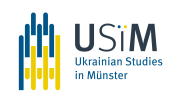Center for Digital Humanities (CDH)

The CDH has existed since 2017 as an association of interests of digital researchers in the humanities and computer science departments. The biennially elected board of the CDH is responsible for the scientific design and strategic orientation of the thematic field of Digital Humanities at the University of Münster. Center for Digital Humanities (CDH)
Centre for Empire Studies (CES)
The Centre for Empire Studies: (Post)colonial Histories and Global entanglements (CES) is an interdisciplinary centre for postcolonial empire studies. The CES is based at the Department of History at the University of Münster. The aim is to analyse empires and imperiality as historical phenomena. Centre for Empire Studies (CES)
Centre for Eastern Mediterranean Studies [de]

The GKM is a joint institute of the Faculties of Protestant Theology, Catholic Theology, History and Philosophy, and Philology. The Centre currently hosts some 120 members from 20 disciplines who research issues related to the Eastern Mediterranean region. Centrum für Geschichte und Kultur des östlichen Mittelmeerraums (GKM)
Centre for Medieval and Early Modern Studies (CMF) [de]

The CMF serves as an organisational platform for cultural and historical research projects on the medieval and early modern period. It is comprised of two departments, the Institute for Early Medieval Studies and the Department of Early Modern Studies [de]. Centrum für Mittelalter- und Frühneuzeitforschung (CMF)
Center for Religion and Modernity (CRM)

The CRM was created from the Cluster of Excellence “Religion and Politics in Pre-Modern and Modern Cultures” in 2012. The research association aims to intensify interdisciplinary religion-related research and establish the topic “Religion and Modernity” as a long-term research focus at the University of Münster. Centrum für Religion und Moderne (CRM)
Center for Religious Studies (CRS) [de]

The CRS develops, advances and coordinates theological and other religion-related research and teaching activities at the University of Münster. It provides the setting for interdisciplinary religion-related studies, principally with regard to Islam, orthodox Christianity, Judaism and theological studies. Centrum für religionsbezogene Studien (CRS)
Cluster of Excellence "Religion and Politics"

The Cluster of Excellence "Religion and Politics. Dynamics of Tradition and Innovation" has been investigating since 2007 the complex relationship between religion and politics across eras and cultures. In the funding phase from 2019 to 2025, the 140 researchers from 20 disciplines in the humanities and social sciences analyze in transepochal studies ranging from antiquity to the present day the factors that make religion the motor of political and social change. Exzellenzcluster "Religion und Politik"
Interdisciplinary Forum for French Studies (iff) [de]

The iff is an interdisciplinary forum dedicated to promoting mutual, synergetic exchange and collaboration in research and teaching in the field of French culture of the past and present. The iff serves to bundle joint courses, lecture series and coordinated research projects. Interdisziplinäres Frankreich-Forum (iff)
Ukrainian Studies in Münster (USiM)

The academic network "Ukrainian Studies in Münster" (USiM) is an interdisciplinary association of researchers studying the historical, cultural and political space of Ukraine at the University of Münster in cooperation with the Centre for the Study of Conflict & Peace (CeCo) in Osnabrück. Founded in 2023, the initiative connects academics from ten disciplines in the humanities and social sciences. The network's aim is to expand Münster as a centre for research on Ukraine, strengthen its international networking, support young academics and transfer Ukraine-related knowledge to politics, business and civil society in North Rhine-Westphalia and Germany.
Centre for Dutch Studies (ZNS) [de]

The ZNS was established at the University of Münster in 1989. In the areas of teaching, research and academic support, the centre addresses cross-disciplinary issues related to the Netherlands, Flanders, Germany, as well as the relations and exchange processes between these regions. Zentrum für Niederlande-Studien (ZNS)
Centre for Textual Editions and Commentary (ZeTeK) [de]

The ZeTeK was founded in 2009 by philosophers, historians, philologists and religious scholars of the University of Münster. Its primary goals include ensuring that researchers have access to ancient or rare foreign-language texts and manuscripts, and to present this basic research to the general public beyond the University’s regular operations. Zentrum für Textedition und Kommentierung (ZeTeK)
Centre for Philosophy of Science (ZfW) [de]

The ZfW is an institutionalised, cross-disciplinary research association at the University of Münster devoted to exploring the issues and problems related to the philosophy of science. Researchers and academic staff from ten faculties of the University including the Faculty of Philology are currently involved in research projects at the centre. Zentrum für Wissenschaftstheorie (ZfW)
University-based collaborations
Former research institutes and associations
Forum for "Antiquity & Romance Studies" [de]

The Forum for "Antiquity & Romance Studies" was a teaching and research association based on Classical, Medieval and Romance Philology at the University of Münster. Forum "Antike & Romania"
SFB “Cultures of Decision-Making”
 Collaborative Research Centre / SFB 1150, funded from 2015 to 2019
Collaborative Research Centre / SFB 1150, funded from 2015 to 2019The Collaborative Research Centre / SFB 1150 examined social practices and cultural conditions of decision-making in a historical-comparative and interdisciplinary perspective from the Middle Ages to the present. The SFB 1150 was comprised of researchers from the fields of history, literature and law, as well as philosophy, cultural anthropology, Jewish and Byzantine studies. SFB "Kulturen des Entscheidens"
SFB “Symbolic Communication and Social Value Systems”
 Collaborative Research Centre / SFB 496, funded from 2000 to 2011
Collaborative Research Centre / SFB 496, funded from 2000 to 2011The Collaborative Research Centre / SFB 496 dealt with the fundamental effects the symbolic had in pre-modern Europe on the formation of social and political structures. The work focused on how social value systems manifested themselves, were visualised, and rendered permanent, but also how they were attacked and altered by ‘symbolic’ communication. SFB “Symbolic Communication and Social Value Systems”

